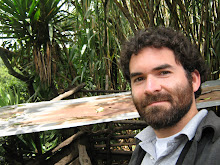"Read the poem Stopping by Woods on a Snowy Evening, by Robert Frost, keeping in mind exactly what is going on—the pause within a journey, the quiet, introspective voice of the speaker, the dark and solitary woods, the falling snow.
The initial four lines are rife with w's and th'; f is there, and v. Three sets of double ll's. The heaviness of the vowels is increased by the use of diphthongs. The two words that end with a mute (think and up) are set within the lines and thus are softened. All other mutes are softened within the words themselves. One could scarcely read these lines in any other than a quiet, musing, almost whispered way.
One can say any number of things about the little horse of the second stanza. It is the only object in the poem on which the speaker focuses. It is the only other living thing in the poem, and it is as willing as the speaker for the moment is hesitant to continue the journey. In any case, we are drawn by the speaker to look at the little horse too, and as we do so the sounds of the whispery introduction, the interior monologue, no louder than the snow falling, are interrupted with little raps of sharper sound—not mallets, not that heavy, but different. “My little horse must think it queer” is not a very rattling line, but the sound of “think,” with its lightly snapping k this time followed not by a softer sound but by the snippet “it,” and “queer,” an echo of the k, makes it altogether livelier than the first stanza. “Stop” is a rap of a sound, then it is quieted by the rest of the line. After “lake” there is a momentary chasm, a fracture of silence out of which a different kind of electricity flows before the line swings and the adjective “darkest” repeats the k once more, two taps of disquietude.
In stanza 3 the reversal has taken place. Instead of the guttural mutes being quieted—swallowed up in a plash of softer sounds—they rise up among and after the soft sounds, insisting they be heard.
The first hard g in the poem occurs on the first line of this third stanza: “he gives his harness bells a shake . . .” Though the g is instantly quieted by the two h's, the moment of introspection is almost over, and the ear anticipates this with “bells” and with the word “shake”--louder than “lake,” more forceful. In the following line the k repeats in the very meaningful word “ask” (the traveler is not the only “asking” creature in the poem); and this line as well as the following lines of the third stanza end with mutes. Altogether, in this stanza, we have “shake,” “mistake,” “sweep,” and “flake,” while, in the two stanzas preceding, there has been only one such moment (the end word “lake” in line 7).
Something is stirring in the very sound; it leads us to ready ourselves for the resolution in 4. There, “the woods are lovely” takes us exactly back to the mood of the first stanza, but the second half of that line thumps out “dark and deep,” both words beginning with a mute and ending with a mute. They represent, in the sound, themselves, and more than themselves. They say not only that the woods are dark and deep, but that the speaker has come to another place in his mind and can speak in this different way, designating with voice, as with the gesture of an arm, a new sense of decision and resolution.
Line 2 of the last stanza both begins and ends with a mute, and there is the heavy p in “promises” in the center of the line. Lines 3 and 4, the same line repeated, are intricate indeed. “Miles,” that soft sound, representative of all one's difficult mortal years, floats above the heavy mutes pacing to the end of the lines—“go,” “before,” “sleep.” The unmistakable, definite weights that are the mutes help to make the final line more than an echo of the third line. Everything transcends from the confines of its initial meaning; it is no only the transcendence in meaning but the sound of the transcendence that enables it to work. With the wrong sounds, it could not have happened."
Stopping By Woods on a Snowy Evening
By Robert Frost
Whose woods these are I think I know.
His house is in the village though;
He will not see me stopping here
To watch his woods fill up with snow.
My little horse must think it queer
To stop without a farmhouse near
Between the woods and frozen lake
The darkest evening of the year.
He gives his harness bells a shake
To ask if there is some mistake.
The only other sounds' the sweep
Of easy wind and downy flake.
The woods are lovely, dark and deep.
And miles to go before I sleep,
And miles to go before I sleep.

No comments:
Post a Comment